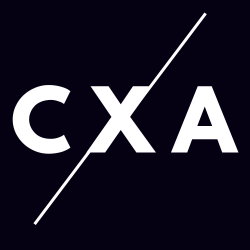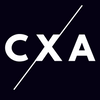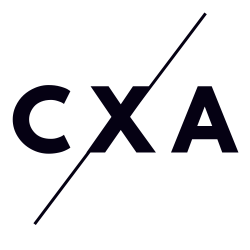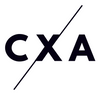Mastering Google's SERP Features: A Guide for Digital Marketers

Have you ever been asked what a Knowledge Panel is by a curious stakeholder? What about when you look on Ahrefs or SEMrush and see 'Image Pack'? The amount and variety of things to think about for online marketers today is incredible. Fear not! In this blog post, we will unpack every one of them and explain how they play a significant and impactful role in the online visibility of the brand(s) you are managing.
Want to be the first to get more guides and insights like this one? Subscribe to our newsletter for free.
In need of a digital agency to take your business to new heights? We can help.
Knowledge Panel
The Knowledge Panel is an information box that appears on Google's SERP, typically on the right-hand side on desktop and at the top on mobile devices. It provides a concise snapshot of information about entities such as people, places, organisations, and things. Google generates these panels automatically, sourcing data from its Knowledge Graph, which aggregates information from reputable sources like Wikipedia, Wikidata, and official websites (Ahrefs).
Example of a Knowledge Panel
For instance, a search for "Nike" yields a Knowledge Panel displaying information about the company, Executive team and President, current stock price and more information such as Nike's social media links and website. This immediate access to key information enhances user experience by reducing the need for further clicks.

How Do You Optimise for Knowledge Panels on Google SERP?
While you cannot directly create a Knowledge Panel, you can enhance the likelihood of your brand or entity appearing in one by:
Establishing a Strong Online Presence: Maintain consistent and accurate information across your official website and social media profiles.
Utilising Structured Data Markup: Implement schema markup on your website to help search engines understand your content better.
Engaging with Reputable Sources: Ensure that authoritative websites mention and link to your brand, as Google pulls data from trusted sources.
Remember, the appearance of a Knowledge Panel is at Google's discretion, based on the entity's prominence and the availability of reliable information.
Image Pack
The Image Pack is a SERP feature that displays a horizontal or grid-like arrangement of image thumbnails related to the user's search query. Clicking on these images directs users to Google Images, where they can explore the visuals further. Image Packs often appear at the top of the SERP but can also be positioned further down, depending on the search intent.
Example of an Image Pack
A search for "Quokkas" (those delightful always-smiling rodents on an island in Australia) presents an Image Pack showcasing various photographs of the adorable creatures. A range of images is generally shown, as Google as ever is multi-variate testing to see what kinds of images users are interacting with to deliver a better experience.

Optimising for Image Packs
To increase the chances of your images appearing in an Image Pack:
Use Descriptive File Names - Name your image files with relevant keywords that accurately describe the content.
Implement Alt Text - Provide descriptive alt text for each image to enhance accessibility and inform search engines about the image content.
Optimise Image Size and Format - Ensure images are appropriately sized and compressed for fast loading without compromising quality.
Provide Contextual Relevance - Place images near relevant textual content to reinforce their association with specific keywords.
Utilise Structured Data - Incorporate schema markup to help search engines understand the context of your images.
By adhering to these practices, you can enhance your visual content's visibility, catering to users' search intent and improving overall engagement.
Local Pack
The Local Pack, also known as the Map Pack, is a prominent SERP feature that appears when a user searches for services or businesses in a specific geographic area. It typically includes a map and a list of three local businesses relevant to the query, along with essential information such as addresses, phone numbers, ratings, and operating hours.
Example of a Local Pack
Searching for "Best cafe in Osaka" triggers a Local Pack displaying nearby cafes and eateries in Osaka. The Local Pack features information about the cafe including their opening hours (usually, not always in every locality), locations on the map, customer reviews, and direct links for directions.

How Do you Optimise for Local Packs on Google SERP?
To enhance your business's presence in Local Packs:
Claim and Optimise Your Google Business Profile - Provide accurate and up-to-date information about your business, including address, phone number, website, and operating hours.
Encourage Customer Reviews - Positive reviews can boost your visibility and attractiveness in Local Packs.
Ensure Consistent NAP Information - Maintain uniform Name, Address, and Phone number details across all online platforms and directories.
Incorporate Local Keywords - Use location-specific keywords in your website content to align with local search queries.
Build Local Backlinks - Acquire links from reputable local websites to enhance your site's authority and relevance.
By focusing on these strategies, local businesses can improve their chances of appearing in Local Packs, thereby attracting more local customers.
The Final Word
Understanding and optimising for Google's SERP features like the Knowledge Panel, Image Pack, and Local Pack are essential components of a robust SEO strategy.
By enhancing your online presence, utilising structured data, and aligning with best practices, you can improve your visibility and engagement in search results.
Staying informed about these features empowers digital marketers to increase SEO visibility and capture those customers who are looking for the content you're creating - and hopefully converting them to be customers!
For further reading and insights, consider subscribing to this blog which will continue to offer comprehensive guides on SERP features and optimisation techniques.
Like this post? Want to be the first to get more like it? Subscribe to our newsletter for free.
In need of a digital agency to take your business to new heights? We can help.




Leave a comment